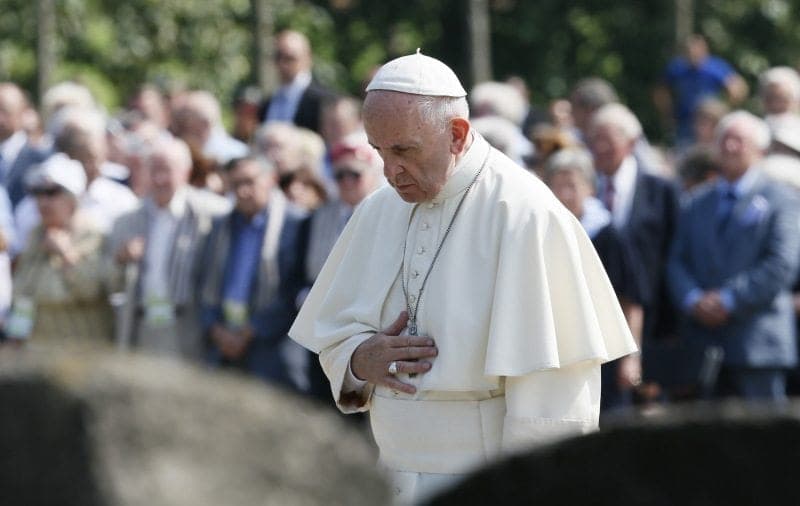KRAKOW, Poland — The memory and pain of the world’s silence during the Shoah should be a call to action for Jews to defend those suffering persecution today, especially Christians, said the chief rabbi of Poland.
While Jews have experienced expulsions and holocausts for the past 2,000 years, today there “are many more attacks on Christians — just because they are Christians — than on Jews,” Rabbi Michael Schudrich told Catholic News Service July 28.
“What it means to me is that the pain that we Jews still feel because of the overwhelming silence of the world — not everyone but the majority were silent — during the Shoah, means that we have to be the first ones to step up to the plate. We have to be the first ones to yell and scream and say, ‘No’” he said.
The rabbi spoke on the eve of Pope Francis’ visit to the Auschwitz-Birkenau Nazi death camp. Used by the Nazis from 1940 to 1945, the camp was the Nazi’s largest and consisted of three parts: Auschwitz I, where many were imprisoned and murdered; the Birkenau extermination camp — also known as Auschwitz II; and Auschwitz III (Auschwitz-Monowitz), an area of auxiliary camps that included several factories.
The pope crossed the infamous “gate of death” July 29 and prayed in silence at several areas of the camp where over 1 million Jews were murdered by the Nazis, as well as 23,000 Roma, 15,000 Soviet prisoners of war and thousands of Polish citizens of different nationalities.
Among those killed were St. Maximilian Kolbe, a Polish Conventual Franciscan friar, and Edith Stein, a Jewish philosopher who converted to Catholicism and became a Carmelite nun, St. Teresa Benedicta of the Cross.
The pope’s silence at the site of one of the worst atrocities of the 20th century is a common reaction for those who visit, Schudrich said.
“Standing there in Birkenau, no words can really be said. We are silent, which teaches us that once we walk on the other side of the ‘gate of death,’ (once) we’re outside of Birkenau, we must spend the rest of our lives screaming and yelling and fighting against all kinds of injustices,” he told CNS.
Today, he continued, history has taken “a bizarre turn,” with attacks on Christians being more common than attacks on Jews.
Schudrich said that while “there’s not a silence” at the persecution of Christians around the world as there was during the Shoah, “there is not enough yelling and screaming.”
The chief rabbi of Poland said that although the visits to the death camp by the Polish St. John Paul II and the German Pope Benedict XVI took a personal dimension, the visit from the first non-European pope in nearly 1,300 years also has significance.
“For Pope Francis, he’s from far away, he doesn’t have to come to Poland — in terms of his own personal background. The fact that he’s coming here, I think for Poland is very important. In Poland, he is one of the great heroes of the world,” he said.
“And for the Jews, he’s coming to Auschwitz and you can’t come to Poland without visiting Auschwitz. You don’t have to come to Poland. But once you’re here, you also have to go to Auschwitz, the worst killing site of human history.”
















